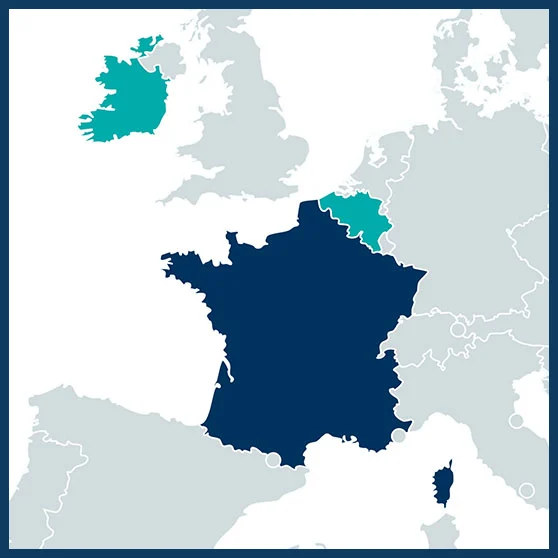01/04/2020 – 31/05/2023
€ 647,874
Prof. Dr. Joachim Claudet
joachim.claudet@cnrs.fr
Coordinator: Island Research and Environmental Obervatory (CRIOBE) – CNRS/EPHE/University of Perpignan Via Domitia – Paris – France
Ecology of Aquatic Systems – Université Libre de Bruxelles – Brussels – Belgium
Marine and Freshwater Research Centre – Galway Mayo Institute of Technology – Galway – Irelan

Preserving EU’s marine ecosystem services is of utmost importance as they support the health and well-being of millions of citizens. These services are nowadays jeopardised due to important alterations of marine environments and species diversity. Functional diversity, defined as the diversity related to species characteristics and their role within ecosystems, experienced a dramatic decrease in the past decades. While extensive research has already been done to investigate the effects of existing conservation tools on species diversity, such as marine protected areas, the impacts of these tools on functional traits and especially those related to trophic processes (i.e., related to food chain), remain up to now un- known. Similarly, understanding how protection of these trophic traits affects eco- system services, animal health, and ultimately human health, is another crucial question, which is yet completely unexplored.
The goal of METRODIVER is to combine a multi-level approach (ecosystem, population, microbiome) across 10 Mediterranean Marine Protected Areas (MPAs) located in France, Spain and Italy, to answer three pivotal questions:
• Do the marine protected areas allow for an efficient protection of the diversity at each level of the trophic web?
• How do these multi-level effects mediate ecosystem services and fish health?
• To what extent they contribute to provide healthier food for human societies?
The following activities will be implemented during the project:
• Assess trophic diversity inside marine protected areas, through sampling in the 10 case studies across two transects, from the centre of the protected area (minimal human pressure) to its outskirts (maximal human pressure);
• Evaluate the main drivers of marine protected areas effectiveness on functional diversity;
• Identify if marine protected areas contribute to human health through increased fish condition.
METRODIVER will collaborate with local authorities and MPA managers around its case studies, from conducting sampling efforts to interpreting and disseminating results. Building on its research work, METRODIVER will help ecosystem managers and policy makers to:
• evaluate the ability of their MPAs, as they are currently designed, to protect food- webs and the services they provide to human populations;
• highlight whether corrective actions are required in existing MPAs and provide guidance for adaptive management;
• design more efficient MPAs in the future.
The project will also work with key stakeholders at European and international scales (protected area networks, European Union institutions, science-policy fora and international organisations) to integrate METRODIVER results into the frame- work of Mediterranean MPA knowledge, and promote short term and longer-term corrective actions and legislation change.